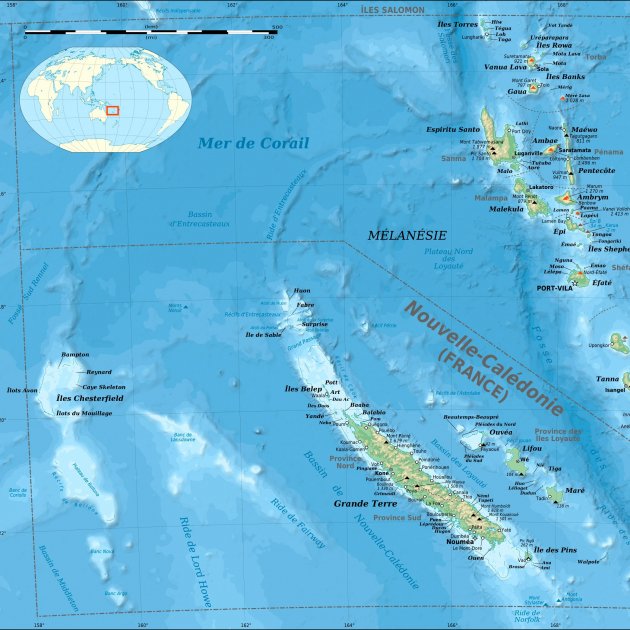Pro-independence and pro-union parties in New Caledonia have this Thursday reached an agreement which clears the way to holding a self-determination referendum in the French "collectivity". It will take place in November 2018. The success of the agreement is due to the patronage of French prime minister Edouard Philippe to bypass the main obstacle: to agree the voter roll between the native Kanaks and the caldoche population, of European extraction.
This point had bogged down negotiations and politics in the archipelago since November 1998. That year, some 72% of New Caledonian voters ratified the Nouméa agreement at the ballot box, which involved the transfer of powers from France to the islands (except for the areas of defence, security, justice and money) and established that an independence referendum would be held between 2014 and 2018.
An earlier agreement, in 1988, had ended with years of violence and insurrection from 1981 to 1988.
France gives the archipelago's autonomous government 1.4 billion euros per year (1.2 billion pounds, 1.6 billion dollars).
The UN includes New Caledonia on its list of "Non-Self-Governing Territories". The island group lies in the Pacific Ocean, some 1,500km east of Australia and has a land area of just under 20,000km2, just over half the area of Catalonia, with some 230,000 inhabitants. That makes it roughly equivalent to New Jersey or Slovenia in area with the population of Baton Rouge, LA or the City of Westminster.
Very involved
"We've spat blood, but we've managed it", said Philippe Gomès, leader of the main pro-union party, Together for Caledonia, this Friday, after ten hours of meetings. "This is the starting point for a consultation that we want to be fair and convincing," added the prime minister. The French government has already started work on the law based on the political agreement.
The law will establish the census and the procedure for the referendum, which will offer two options to voters: independence or maintaining their current status as a "collectivity". If independence wins, the deadlines and terms of the separation will have to be established, although French newspaper Le Monde reports (in French) it currently doesn't look likely that they will win.
The "climate of confidence" which dominated the meeting was key to getting the referendum unstuck, according to Philippe. "We have a political agreement, and beyond this agreement we have confidence, which is as or more important". Paul Néaoutyine, head of Palika (the pro-independence party) said that the agreement is fruit of having taken "the time necessary to have opposing positions evolve".
Prime minister Philippe was very involved personally. "I had never seen a prime minister spend the whole day with us," said Gomès. "Everyone has noted his participation. It's the proof that the state will accompany us in this process", added Sonia Backès, leaders of the pro-union Republicans of New Caledonia.
